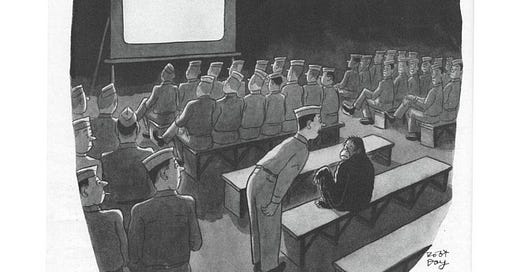People say you shouldn’t try to explain comedy. To paraphrase E. B. White: analyzing a joke is like dissecting a frog; no-one laughs, and the frog dies.1
Let’s analyze that.
To begin with: if you’re in middle school, about to dissect a frog, and the frog is still alive, something has gone badly wrong. Who’s teaching this class, in which tweens are mandated to murder an amphibian? What you’ve got here is not a dissection. It’s an Evil Dead spin-off in which a zombie frog hops frantically away from 20 scalpel-wielding kids.
I think, if you walked past a classroom, looked in, and saw that, you might laugh. I’m not sure the frog dies—maybe the frog kills?
So much for E. B. White. Humor can be analyzed, and it doesn’t always expire in the process. It’s an important fact about jokes that they can be logically explained: we can give reasons why something is funny. As I’ve argued elsewhere, this fact casts comic light on the human condition. But does it mean we can explain the nature of humour its…
Keep reading with a 7-day free trial
Subscribe to Under the Net to keep reading this post and get 7 days of free access to the full post archives.



